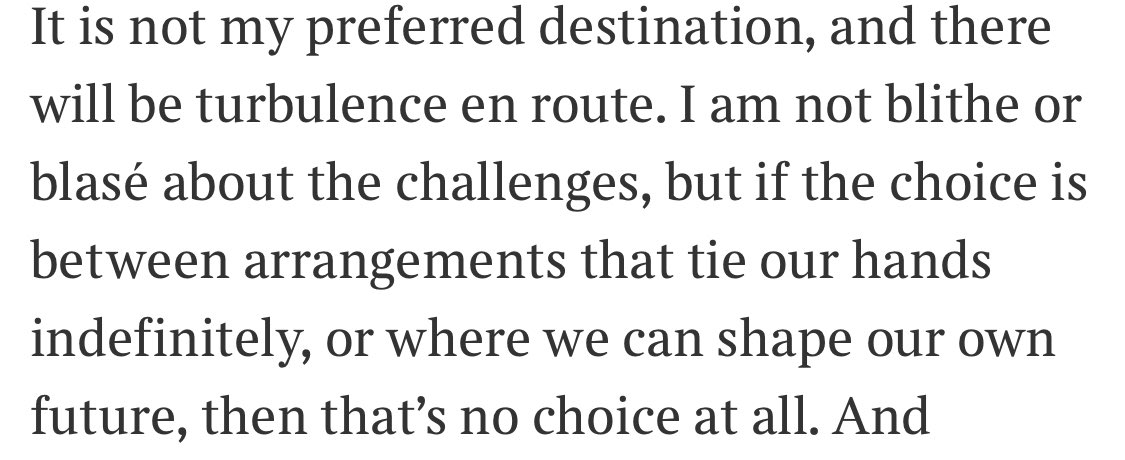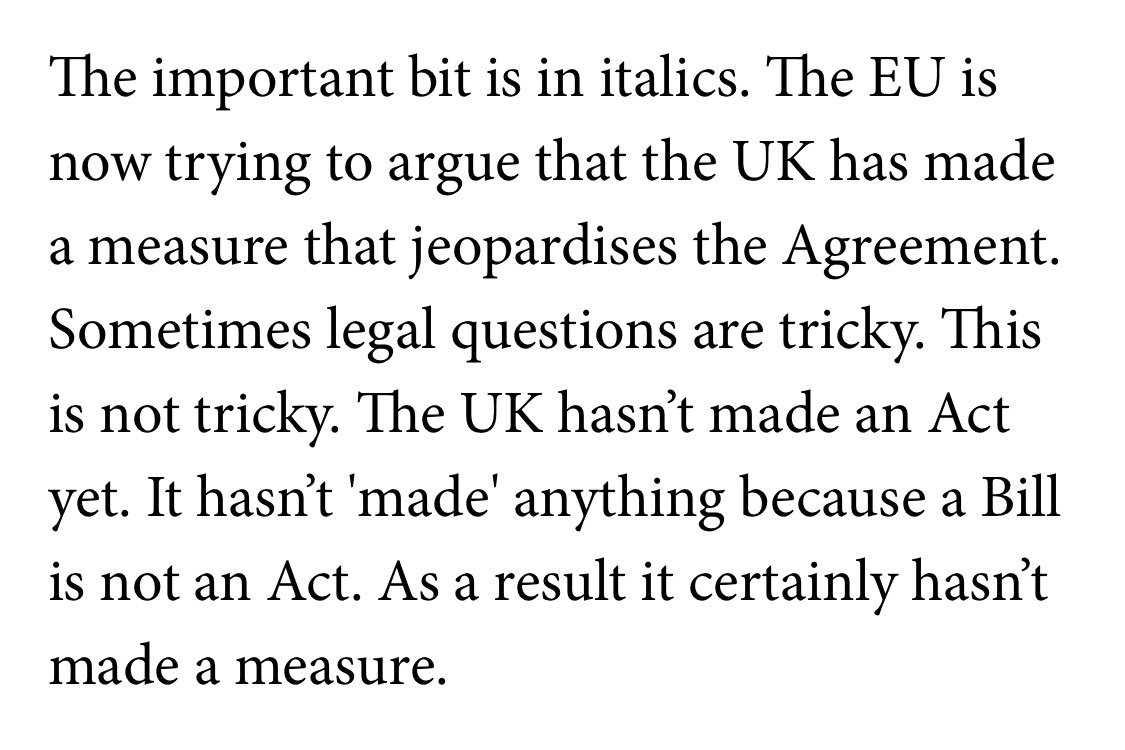
I looked at this piece by @michaelgove in an effort to understand what it is that prevents the current government from agreeing a free trade agreement with the EU. thetimes.co.uk/article/michae…
What are these “restrictions” and “arrangements that tie our hands indefinitely” that we are being asked to sign up to? Oddly, given that we are asked to be shocked and outraged, no details are provided.
Fortunately, we are aware from wider commentary that the issue is subsidy control.
At this point it is worth remembering what a certain @Michaelgove told @CommonsFREU in March: “The subsidy regime that the UK proposes to put in place after we have left the EU will be one that the EU will recognise as a robust system.”
(See committees.parliament.uk/oralevidence/1…, Q25.)
It is the UK government’s refusal to make good on that commitment that is the root of the current problem.
That is despite the fact that many convinced hard Brexiters believe that a robust U.K. subsidy regime would be a good idea.
https://twitter.com/georgeperetzqc/status/1317000827056410625
It is significant that @michaelgove is so vague about what the issues preventing an agreement are. That’s because he must realise that when they are written down, most people - including many passionate Brexiters - will indeed be shocked and outraged.
But the shock and outrage will be that the current government sacrificed a free trade agreement on the altar of a sudden and unexplained hostility to the idea that there might be some robust legal regime governing its ability to throw money at whatever businesses it likes.
NB I know that fishing is also an issue.
But the same point applies: if the only issues preventing an agreement are subsidies and fish (a tiny part of our economy and one where there is, as @tconnellyRTE explains, a deal to be done) the shock and outrage will be that the current government refused to budge. 
https://twitter.com/tconnellyRTE/status/1317355725253992449

• • •
Missing some Tweet in this thread? You can try to
force a refresh








